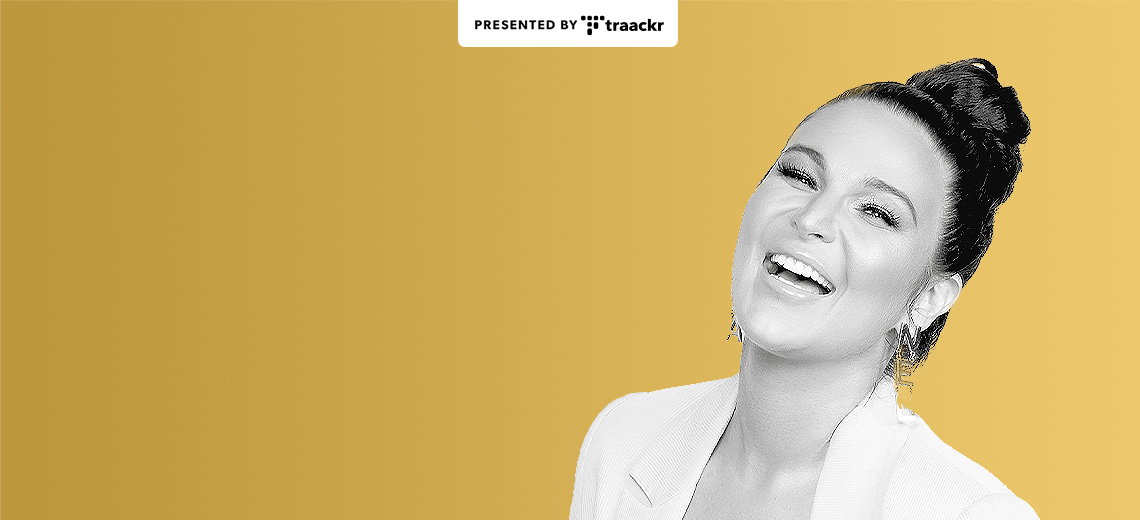This is an episode of the Glossy Beauty Podcast, which features candid conversations about how today’s trends are shaping the future of the beauty and wellness industries. More from the series →
Subscribe: Apple Podcasts • Spotify
Like many beauty entrepreneurs, Rachel Roff, founder and CEO of Urban Skin Rx, came up with the idea for her brand after a workplace epiphany. As a trained aesthetician, she discovered that the tried-and-true treatments found in dermatology and aesthetics environments were not suited for darker skin tones.
“When it came time for me to do practicals [hands-on experience to graduate and receive a license], you have to service friends and family. I would bring in my group of friends and family, many of whom had melanin-rich skin. I would get from teachers, ‘Don’t do this, don’t do that. Darker skin burns so easily. We have to keep it very basic,” Roff said on the latest episode of the Glossy Beauty Podcast.
Unsatisfied with the limited skin-care solutions that were offered for people of color, Roff opened the Urban Skin Solutions Medical Spa in 2006 in Charlotte, North Carolina. After seeing demand in that environment, Roff spun out the Urban Skin Rx brand in 2010 to serve more people. Today, it is sold in Target, Walmart and Ulta Beauty.
Part of its more recent success was largely due to a viral TikTok moment in 2020. An unpaid influencer posted a before-and-after of the brand’s hero cleansing bar that forever changed the brand’s trajectory. Last year, Urban Skin Rx hit $30 million in sales.
“One day at the office, my head of e-commerce [was like], our sales are triple what they should be at noon,” she said. “This girl ended up emailing us and was like, ‘Hey, I just wanted to let you know that I posted this on my TikTok, and it’s now at like a million views.’ We were not on TikTok at this point as a company,” she said. “It really has been a wild ride since, even to this day, the positive and negative effects of that moment will have forever changed our brand. It has given me a lot of life lessons as a leader, as a CEO, on what I would do if it happened again.”
Below are additional highlights from the conversation, which have been lightly edited for clarity.
Walking a line
“To be fully transparent, I’m not a woman of color, and developing this brand, with its largest consumer base being women of color, has its pluses and minuses. There is no doubt that the color of my skin has helped open many doors for me and has given me opportunities. … On the flip side, in more recent years, people have really not liked the fact that the majority of our brand is not a Black-owned business. I’m trying to continue to position ourselves in this environment as a really strong ally for marginalized communities, as well as the demographics that we cater to and care so much about. … A lot of people do have questions like, ‘Why are you doing this when you’re not a woman of color?’ It’s not in my DNA to sit back and watch such a large disparity and such an unjust thing that doesn’t affect me and just be like, ‘I’m not going to do anything about it.'”
Lessons learned
“I don’t know if my investors would necessarily expect [that a viral sales moment] wouldn’t be duplicated again, so that has been an interesting ride, in terms of forecasting and demand planning. You definitely can’t prepare for it. Luckily, our customer service team was something that I had done a really good job building out. We had kept it in-house, and a lot of my customer service agents are estheticians, so in terms of being able to talk to consumers through our Instagram channel and our own personal DTC channel, live chat, I think we did do a really good job of [that]. We were not able to really pivot on TikTok as fast as I wanted to — it was so embarrassing, looking back. I had a team of about 17-20, and I remember sitting around this conference room table, and we’re setting up our TikTok page. We’re like, ‘What the hell do we do with this page?’ Coming up with the content strategy was all [done] in such real time. … I pushed the team really, really hard to meet the demand of this. I think, looking back, I don’t know if I regret how hard I pushed the team. I do have regrets about how I handled TikTok. You have to accept that you can’t fully rise to that occasion. I really invested in a large workforce. We almost doubled in size, and our sales team tripled overnight. From that day, our company has been twice as big as we are — and then a couple of months later, the pandemic hit. There was this three-month period where the company grew so much, and I don’t think I evaluated how sustainable it all was.”
A founder’s role
“I didn’t necessarily start this brand to be a family brand; I have a daughter who’s 10 and I want her to be whatever she wants to be in life, not to take over the legacy of Urban Skin Rx. There are a lot of things that I want to do and I’m not entirely sure that I’m the right person, or that we currently have the right resources to live up to [the brand’s] potential. I think about this brand on a global scale and I think about the accessibility, which is so important to me.”




